Mango Languages
Mango Languages was founded in 2007 by Jason Teshuba, alongside Mike Teshuba, Ryan Whalen, and Mike Goulas. Born from Jason's own struggles and desires to achieve fluency in multiple languages, Mango Languages was developed to fill the gap he saw in existing language learning resources. The platform is designed to assist learners in achieving real conversational fluency through a methodology rooted in practical usage rather than theoretical study. This curriculum has notably grown to serve a vast user base with its innovative approach to language acquisition (Wikipedia) (Mango Languages).
Differentiation What sets Mango Languages apart in the competitive field of language learning programs is its emphasis on organic language acquisition. The platform offers an intuitive user experience that includes color-coded translations, spaced repetition, and interactive lessons that are accessible both via web and mobile apps. Mango Languages also integrates voice comparison technology, allowing learners to compare their pronunciation with that of native speakers, enhancing the practical learning experience (Wikipedia).
How to Get Started To begin with Mango Languages, users simply sign up and choose a language from over 70 options available. The program is structured to accommodate daily practice, recommending regular sessions that can easily fit into a homeschooling schedule. The activities are designed to be engaging and interactive, fostering both independent and guided learning, depending on the child's age and learning preferences.
Educational Content Mango Languages offers courses in a wide array of languages ranging from commonly taught languages like Spanish and French to less commonly available options such as Cherokee and even Pirate. Each language course is designed to cover practical conversation skills, cultural nuances, and grammatical principles (Wikipedia).
What’s Good About It Users particularly appreciate Mango Languages for its user-friendly design and its effective teaching approach that focuses on practical language use. The app’s interactive features and the ability to track and sync progress across devices make it a favored choice among homeschooling families looking for a comprehensive language learning tool.
What Could Be Improved While Mango Languages excels in many areas, some users feel that the depth in grammar and writing could be enhanced. The program tends to focus more on conversational skills, which might leave some learners wanting more rigorous grammatical structure training and written language practice.
Advice from Parents Parents recommend integrating Mango Languages into a daily learning routine, ensuring consistency which is key in language learning. They suggest complementing the digital lessons with supplementary materials such as books, music, and movies in the target language to enhance the learning experience and maintain engagement.
Ideal Fit Mango Languages is particularly suited for students who are visual and auditory learners, enjoying interactive, gamified learning environments. It's ideal for those who want a flexible, engaging way to learn a new language that goes beyond traditional textbook approaches.
Not a Fit For This program may not be the best fit for students who require a heavily structured or traditional academic approach to language learning, particularly those who need in-depth explanations of grammatical rules or a more textbook-based learning structure.
Grades Mango Languages is suitable for a wide range of learners, generally from kindergarten through 12th grade, depending on the child's reading and comprehension skills.
Cost Mango Languages offers a subscription model, with prices ranging from $7.99 per month for one language to $17.99 per month for access to all languages. Annual subscriptions provide a discounted rate (Wikipedia).
Ways to Get It Mango Languages can be accessed directly through their website or via their mobile apps available on both iOS and Android platforms. Additionally, many public libraries offer free access to Mango Languages, providing a valuable resource for homeschoolers.
Affiliate Disclaimer: Some links on our site are affiliate links, which means Modulo may earn a small commission if you purchase through them (at no cost to you). Rest assured, we only recommend resources we’ve rigorously vetted and truly love—affiliate link or not. Thank you so much for supporting our work!
Explore More World Language Programs We Recommend
Explore Dinolingo’s innovative approach to language learning for children: a captivating, game-driven curriculum that excites and educates.
Explore our in-depth review of Homeschool Spanish Academy, which pairs students with native Spanish-speaking teachers for an immersive online learning experience that is both flexible and effective
Explore our comprehensive review of Niños and Nature, a unique curriculum blending Spanish learning with nature and creativity, perfectly designed for young learners and their families.
Discover how Kahoot! turns learning into an interactive, competitive game, making education engaging and fun for homeschooling families,
Discover how Mango Languages revolutionizes homeschool language learning with interactive, conversational tools in our expert review.
Discover how italki’s personalized, one-on-one online language classes make mastering a new language accessible and engaging for homeschoolers of all ages.
Discover how Homeschool Languages innovates early language learning with playful, interactive methods designed for young learners, emphasizing real-world vocabulary
Explore the unique world of Concordia Language Villages, where immersive language learning meets cultural experience in a dynamic camp setting. Perfect for homeschoolers seeking a comprehensive cultural dive
Discover how Coffeebreak revolutionizes homeschooling with podcast-based language lessons tailored for students from kindergarten through high school.
Discover 'Sendung mit der Maus,' a German language show that transforms complex ideas into child-friendly lessons, ideal for homeschooling
Delve into “Learning German through Storytelling: Die Dritte Hand" with our review that highlights how a detective story series can revolutionize learning German
Explore the strengths of Herr Wallaces Handbücher der deutschen Grammatik: a structured German textbook perfect for homeschoolers seeking clear, methodical learning
Discover the Goethe-Institut's unique blend of German language and cultural studies, designed for a comprehensive and engaging learning experience. Ideal for dedicated learners across all ages
Discover how DW Learn German revolutionizes homeschooling with engaging multimedia content and cultural insights. Ideal for K-12 learners exploring a new language
Discover "Der kleine Drache Kokosnuss": an engaging, story-driven German learning program for young homeschoolers, blending fun with foundational language skills
Unpack the depth of the French language with 'Learn French with Alexa,' an adaptable and self-paced online learning platform perfect for homeschooling families who desire a rich, cultural curriculum.
Discover how Frantastique's innovative, story-driven app makes learning French engaging and effective for teens. Our review dives into its unique features and benefits
Discover how the Alliance Française offers a unique blend of language learning and cultural immersion, ideal for homeschooling families seeking a comprehensive French program
Discover Sarah’s Spanish School: an engaging, interactive Spanish program for homeschoolers, designed to make language learning enjoyable and effective for young learners.
Discover Salsa from PBS, an engaging, puppet-driven Spanish curriculum designed to introduce young learners to a new language and culture effortlessly.
Discover how Expedition Spanish revolutionizes language learning for homeschoolers with live, interactive classes that focus on cultural immersion and conversation.
Discover the unique, interactive features of Calico Spanish in our comprehensive review tailored for homeschooling families
Dive into the engaging world of Beautiful Mundo, a unique homeschooling curriculum that blends Spanish language learning with daily life through literature, music, and interactive play. Perfect for families seeking a flexible and immersive educational experience
Explore "Spring into Spanish," a playful, immersive Spanish program, designed by Miche Baskett, bringing 20+ years of teaching experience to make Spanish fun and accessible for homeschoolers via her online classes.
Discover "The German Project," an innovative German language program tailored for homeschoolers, featuring interactive, character-driven lessons that make learning both fun and effective.
Discover how Muzzy’s unique animated language program makes learning new languages engaging and fun for children, directly from an experienced educator’s perspective.
Duolingo is one of our top choices for Foreign language . It was created by Luis von Ahn . Duolingo is a app designed to help anyone learn a new language. Duolingo was created to make learning fun and universally accessible. They wanted to make language learning a comprehensive and personal experience.
Bon Voyage World Languages Academy is one of our top choices for Foreign Language. Bon Voyage World Languages Academy was created by Elizabeth Porter. It’s a linguistic and global citizenship education program for grades Pk-12, taught by certified native-proficient language teachers.
Mango Languages is one of our top choices for learning Foreign Language for kids. Mango Languages was created by Jason Teshuba and Mike Teshuba. For an engaging and interesting language mastery curriculum that teaches a wide range of languages to students who are interested in numerous cultures.
Manisha Snoyer is an experienced educator and tech entrepreneur with over 20 years of experience teaching more than 2,000 children across three countries. She co-founded Modulo with Eric Ries to help families design personalized educational experiences. Prior to Modulo, she and Eric founded Schoolclosures.org, the largest relief effort for families during the pandemic that provided a hotline, free online math tutoring, and other essential resources to support 100,000 families. As a an early mover in alternative education, Manisha created CottageClass, the first microschool marketplace in 2015. She is dedicated to empowering families to build customized learning solutions that address academic, social, and emotional needs. Manisha graduated Summa Cum Laude from Brandeis University with degrees in French Literature and American Studies and minors in Environmental Studies and Peace & Conflict Studies.
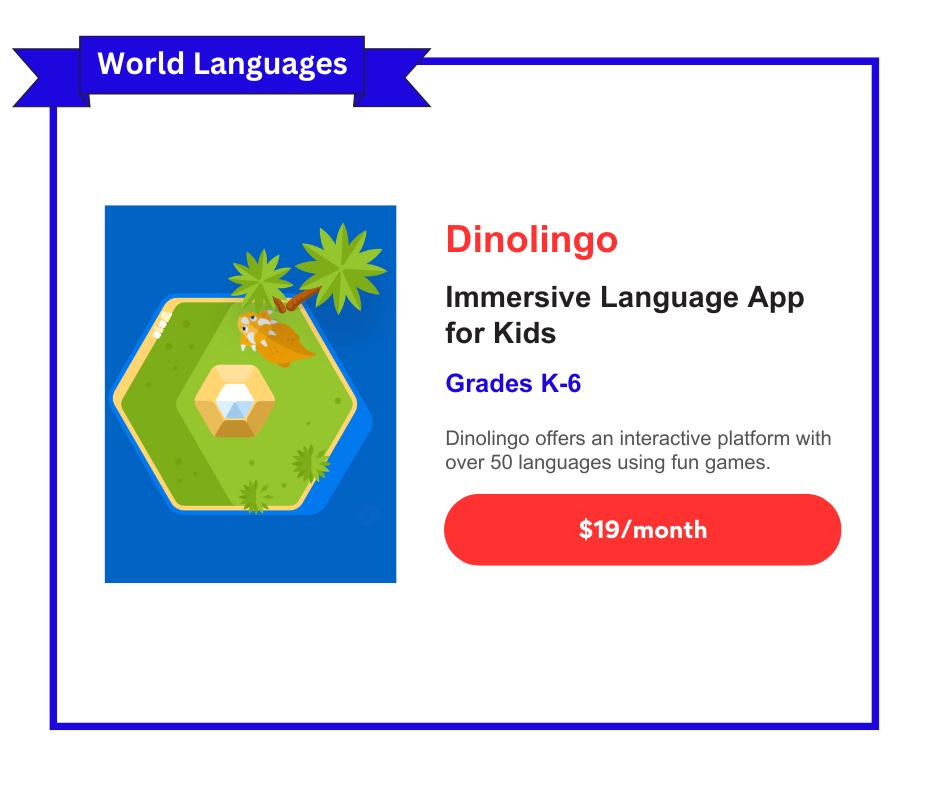
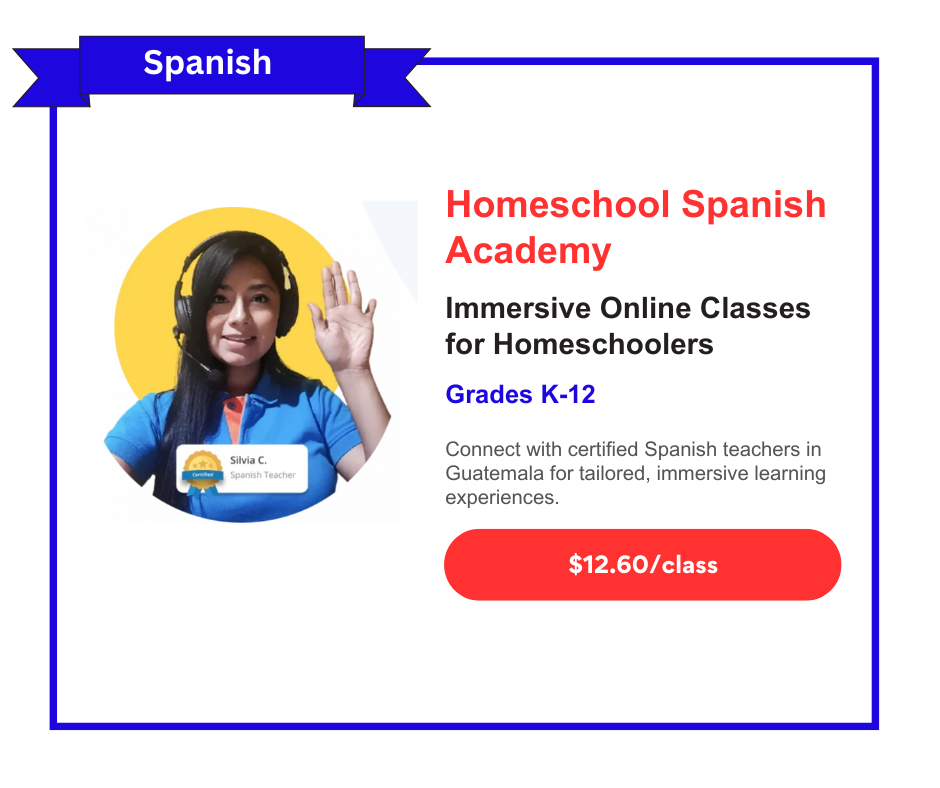
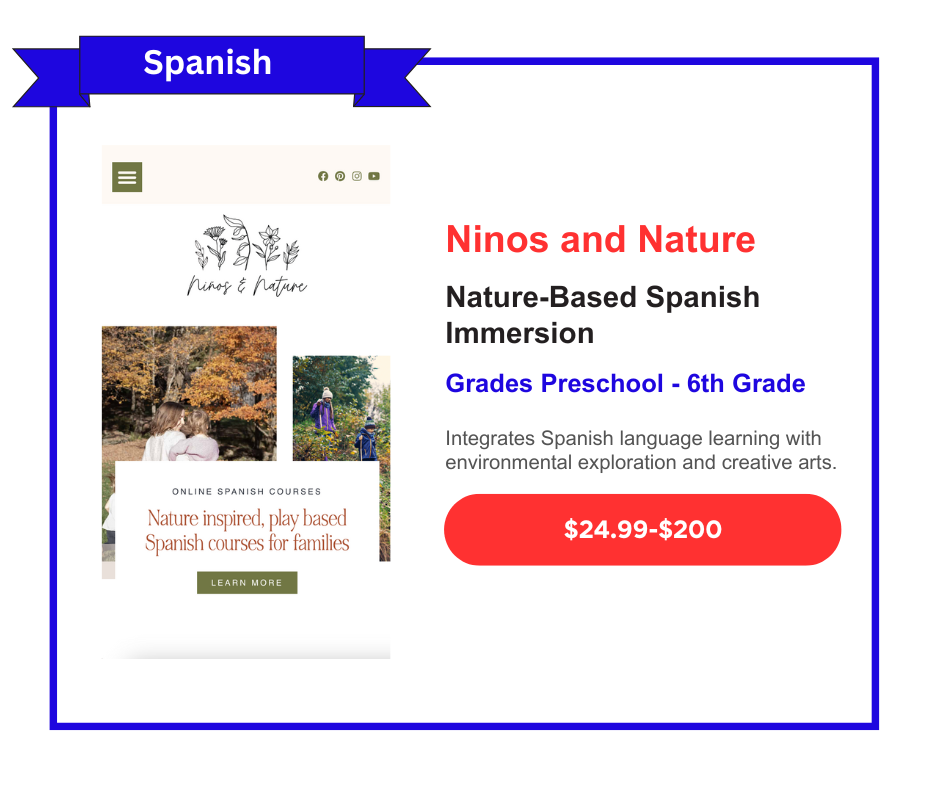
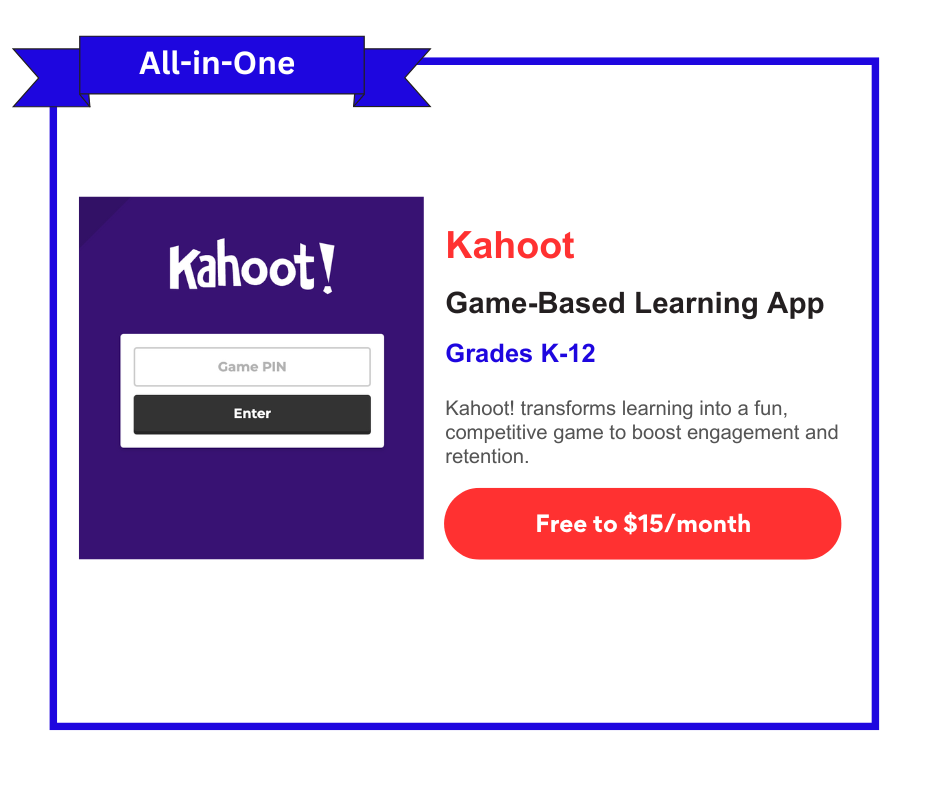
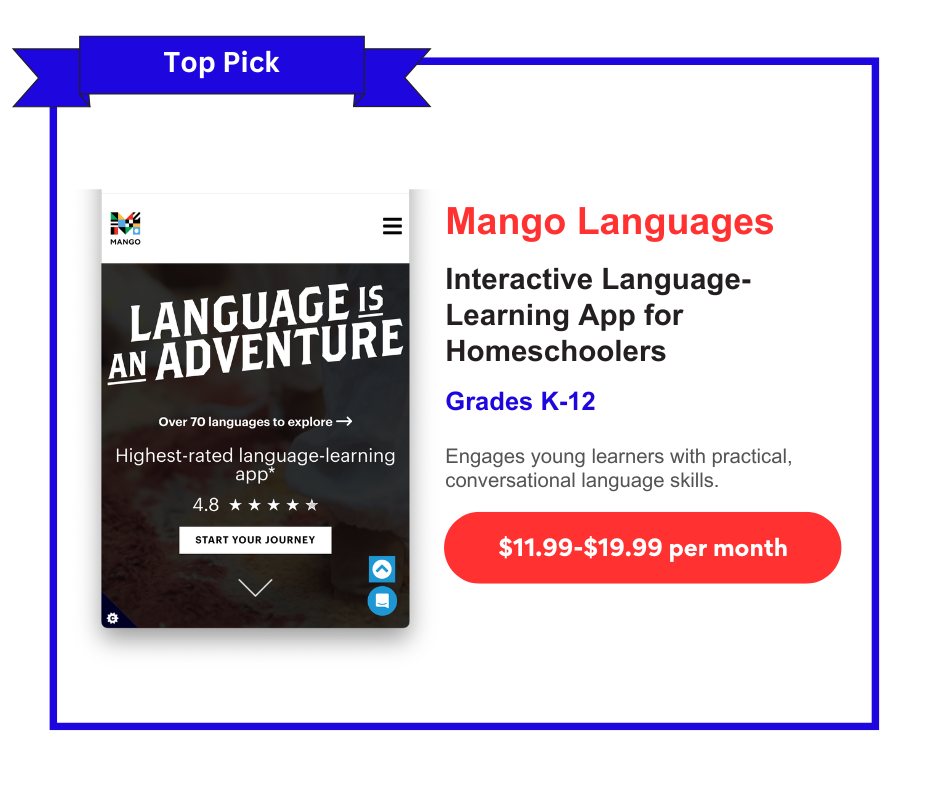
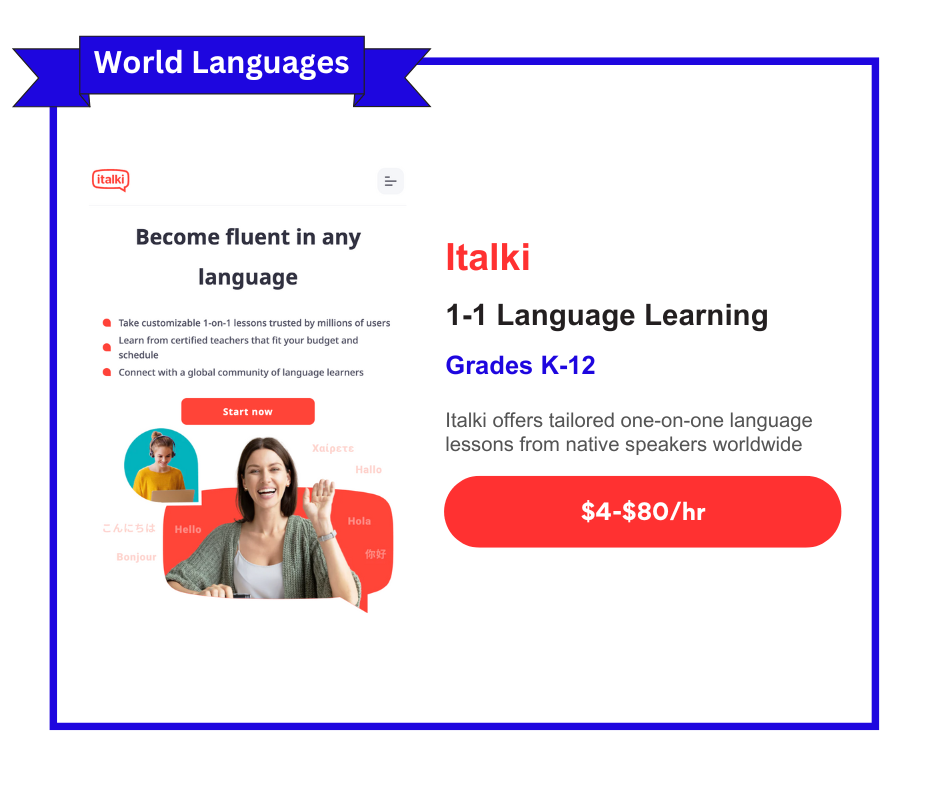

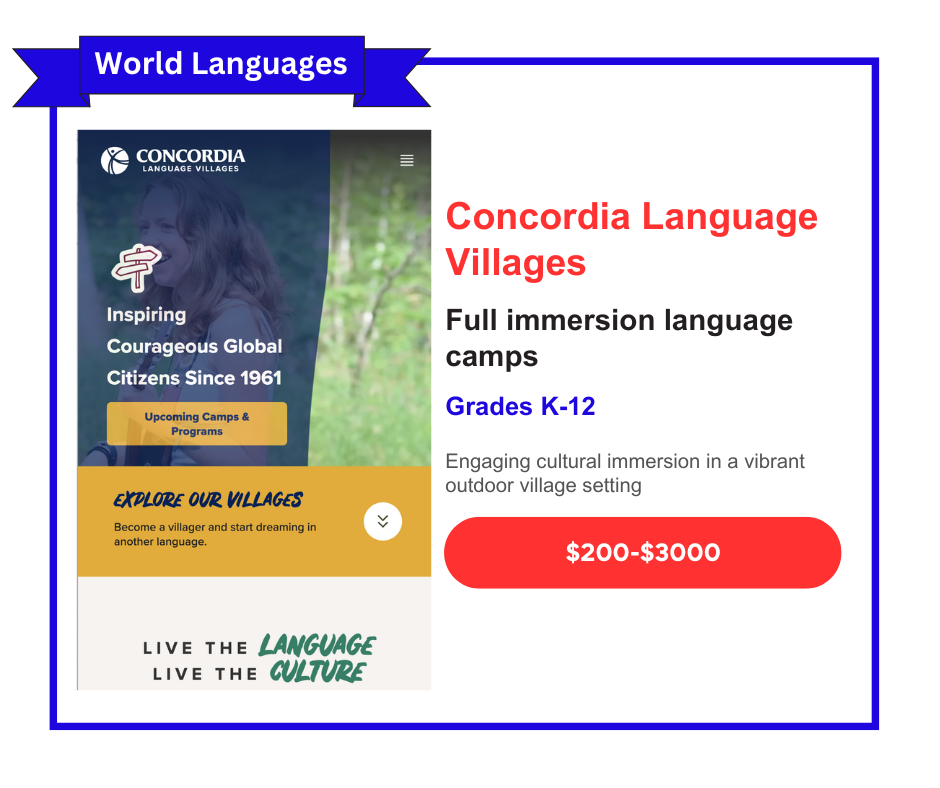
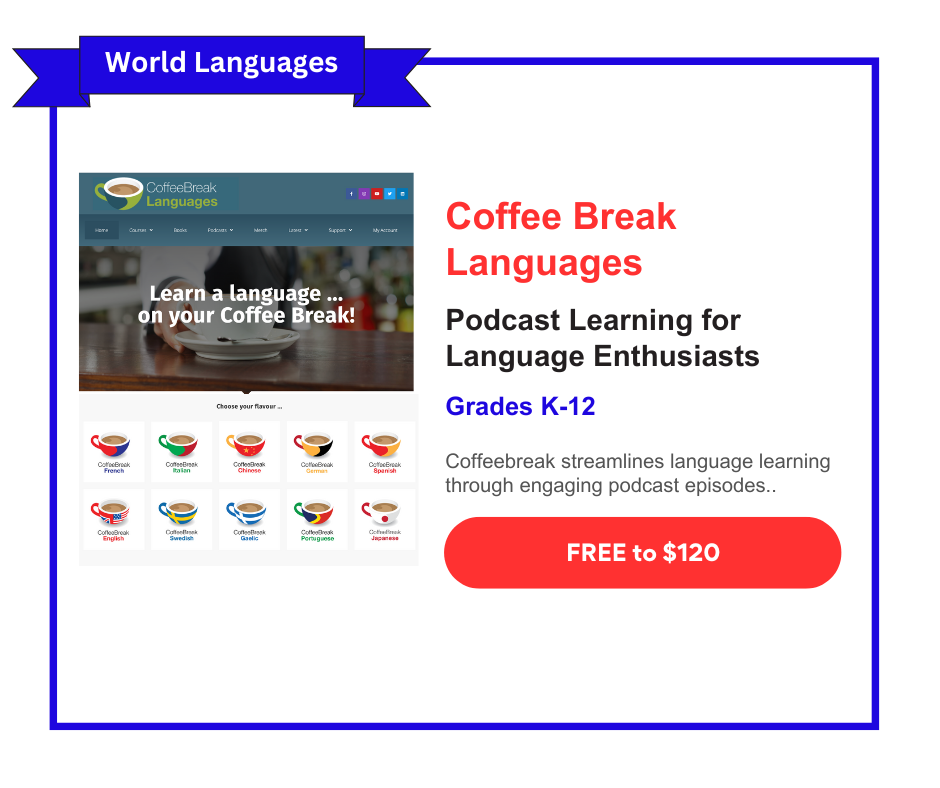
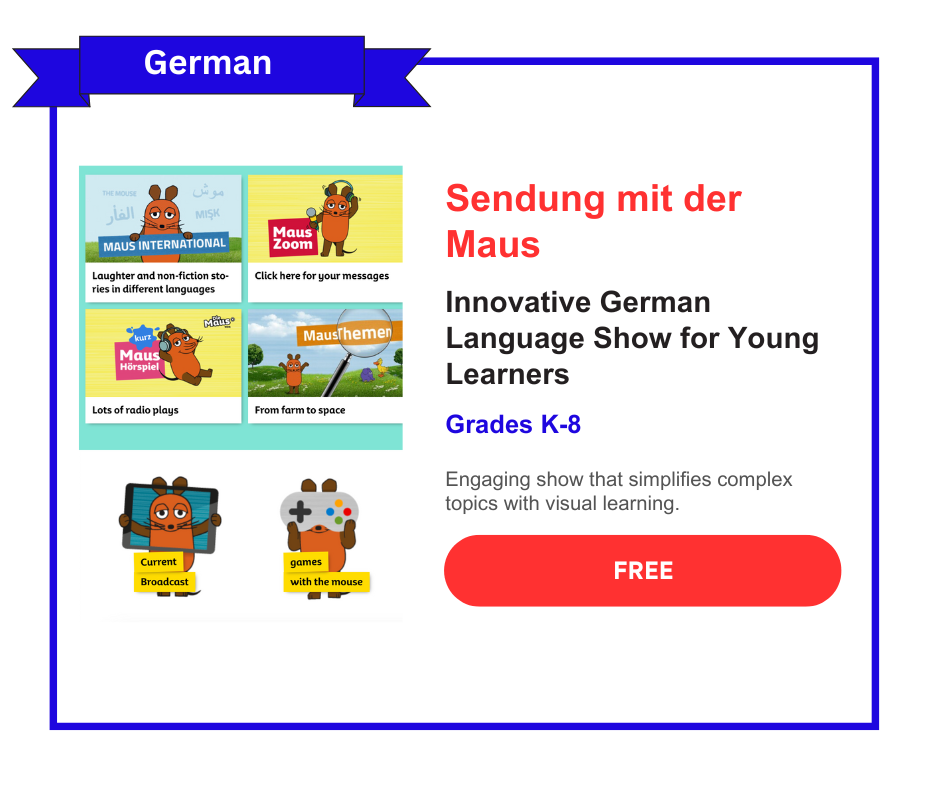


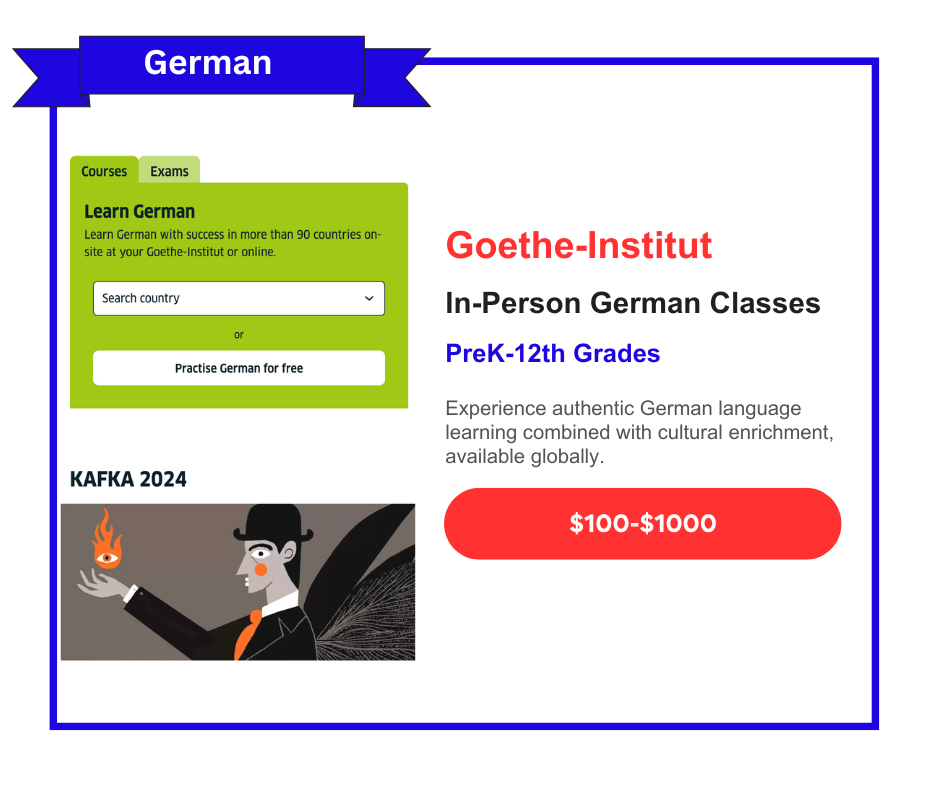

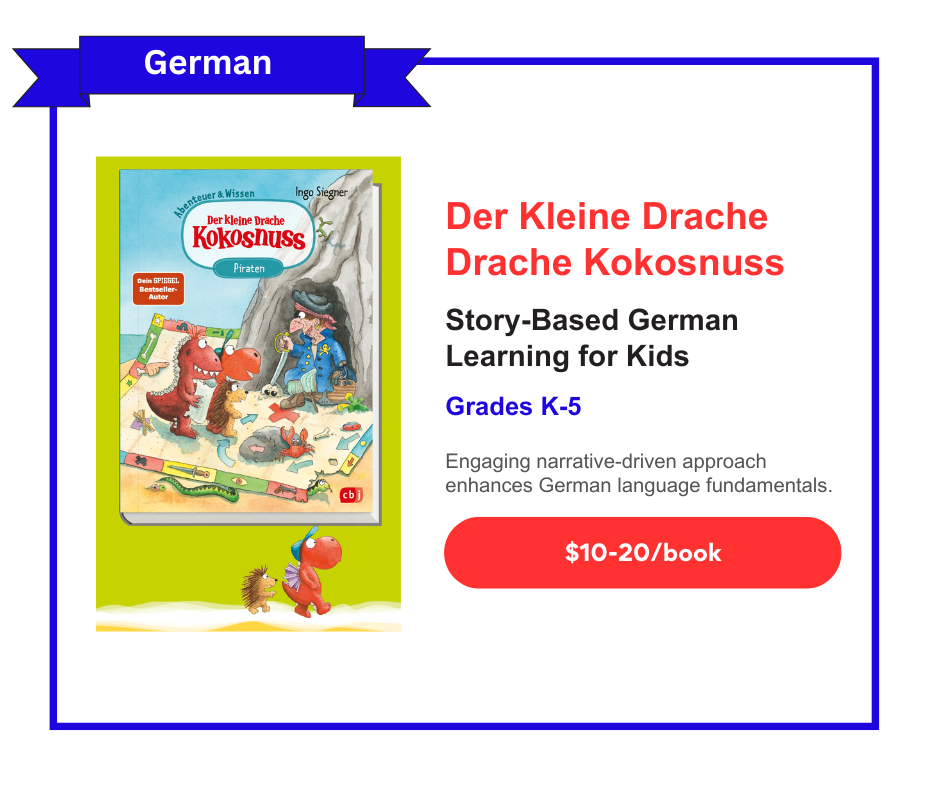
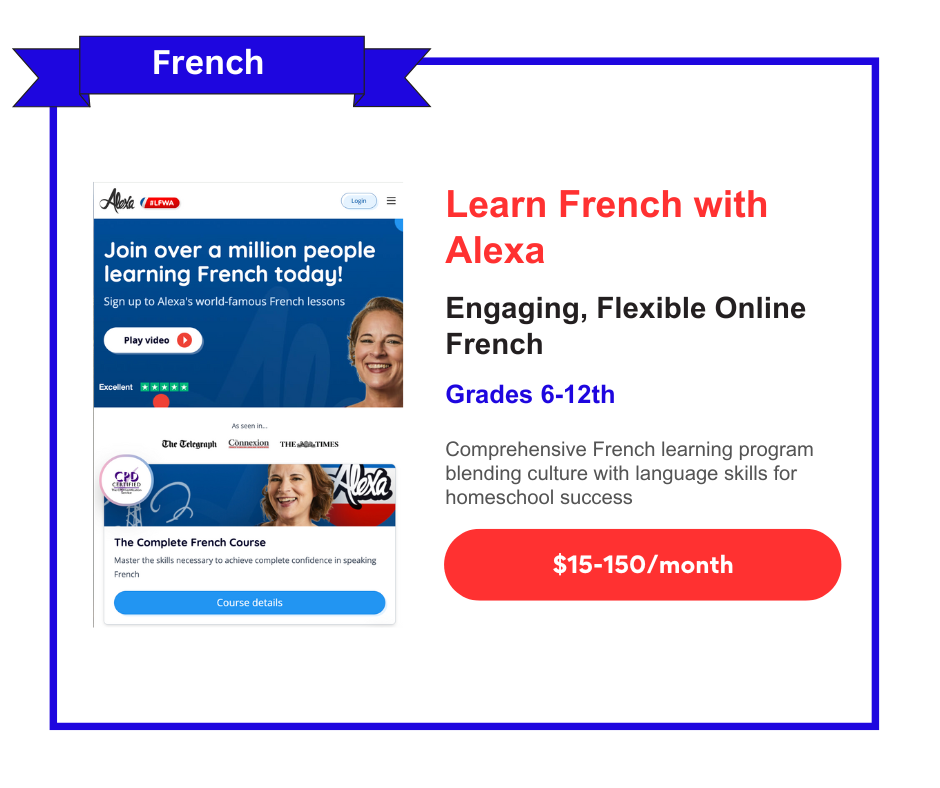
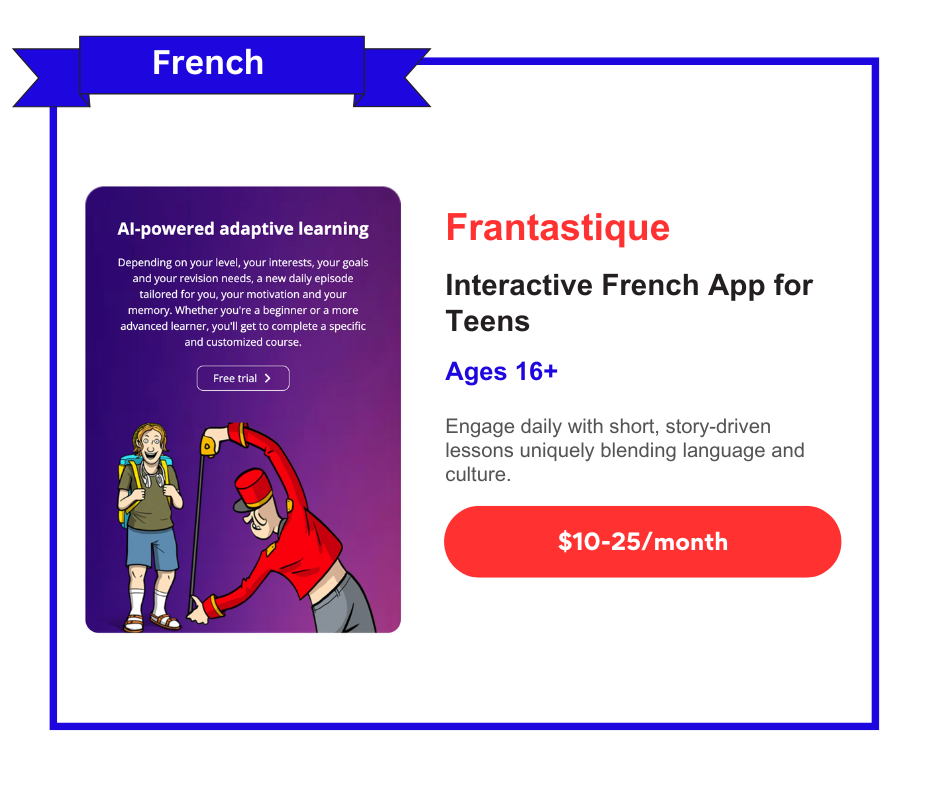
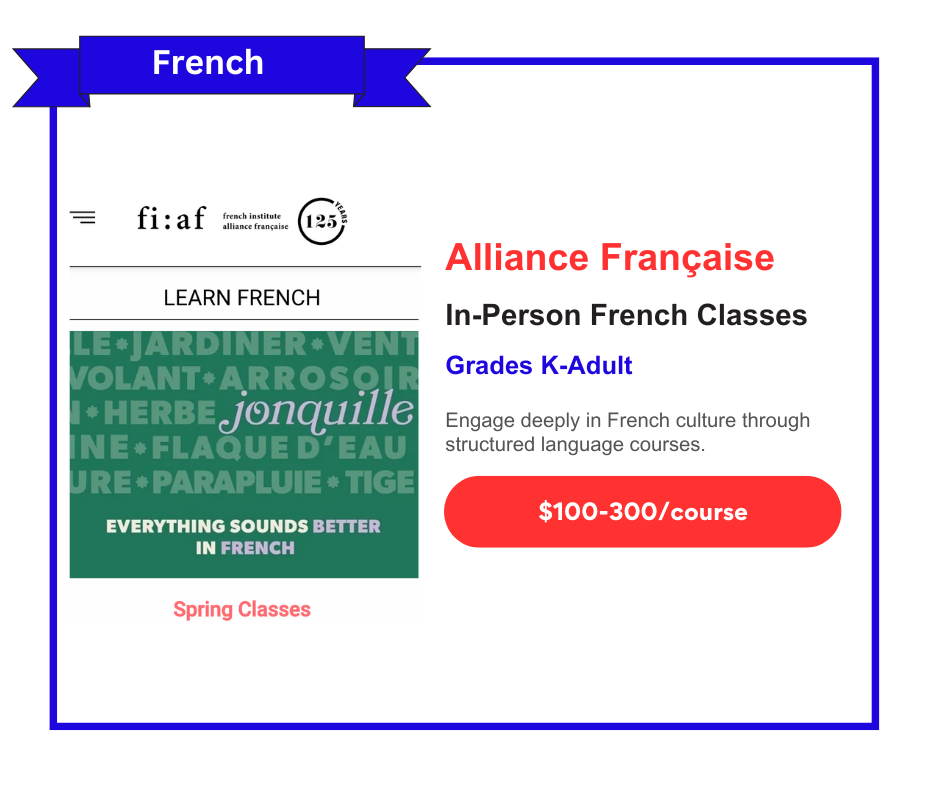
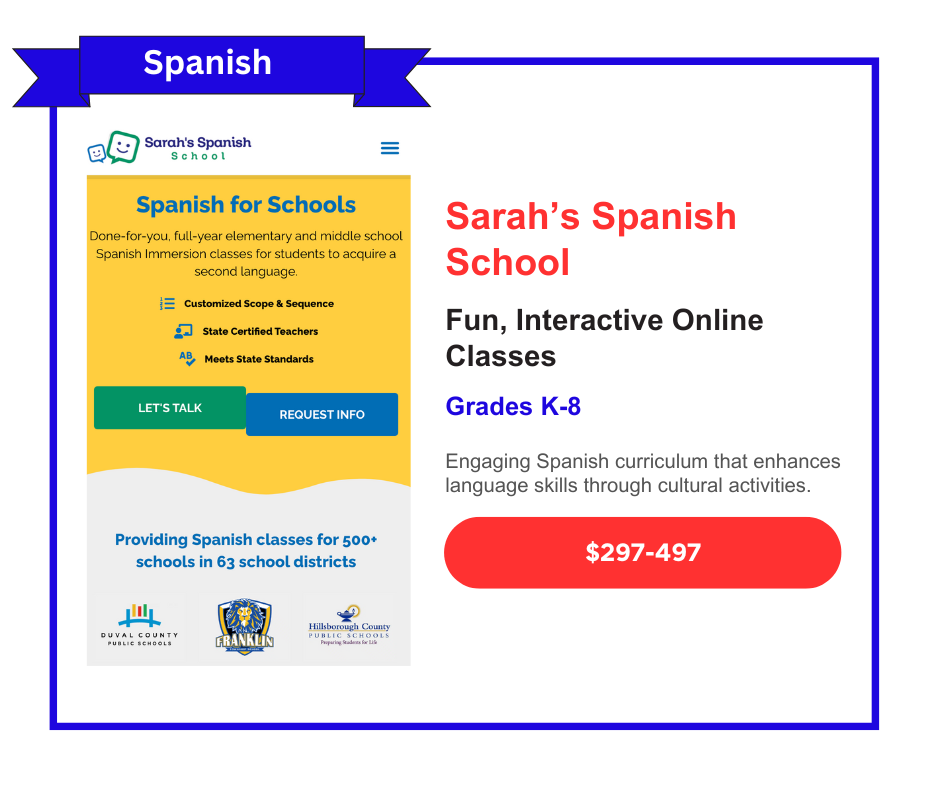
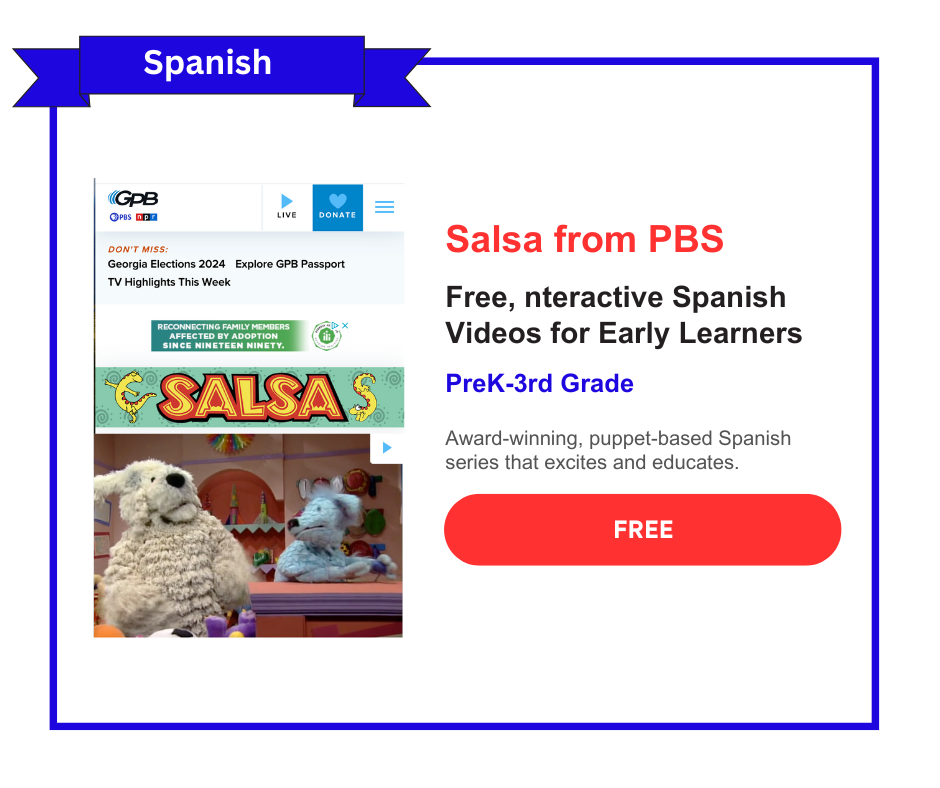
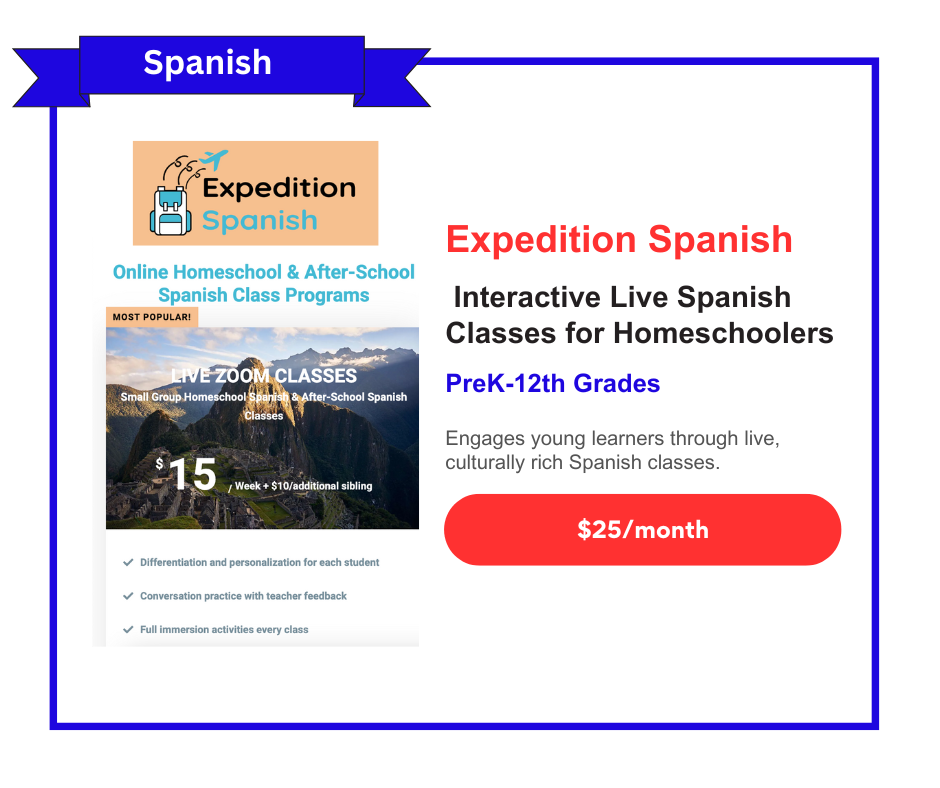
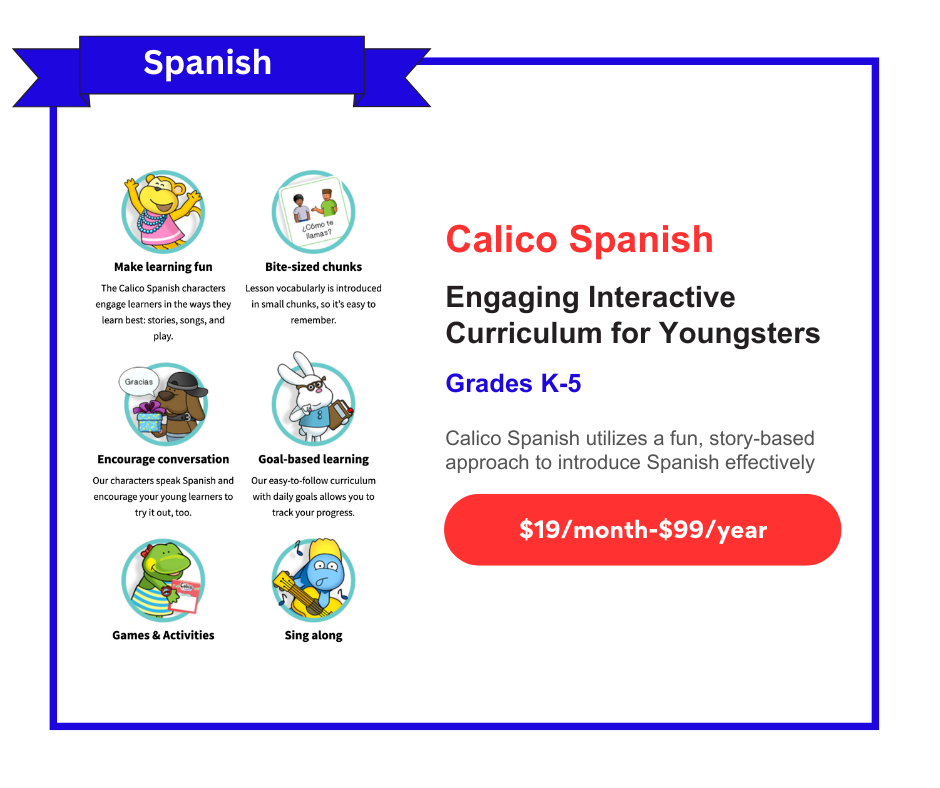

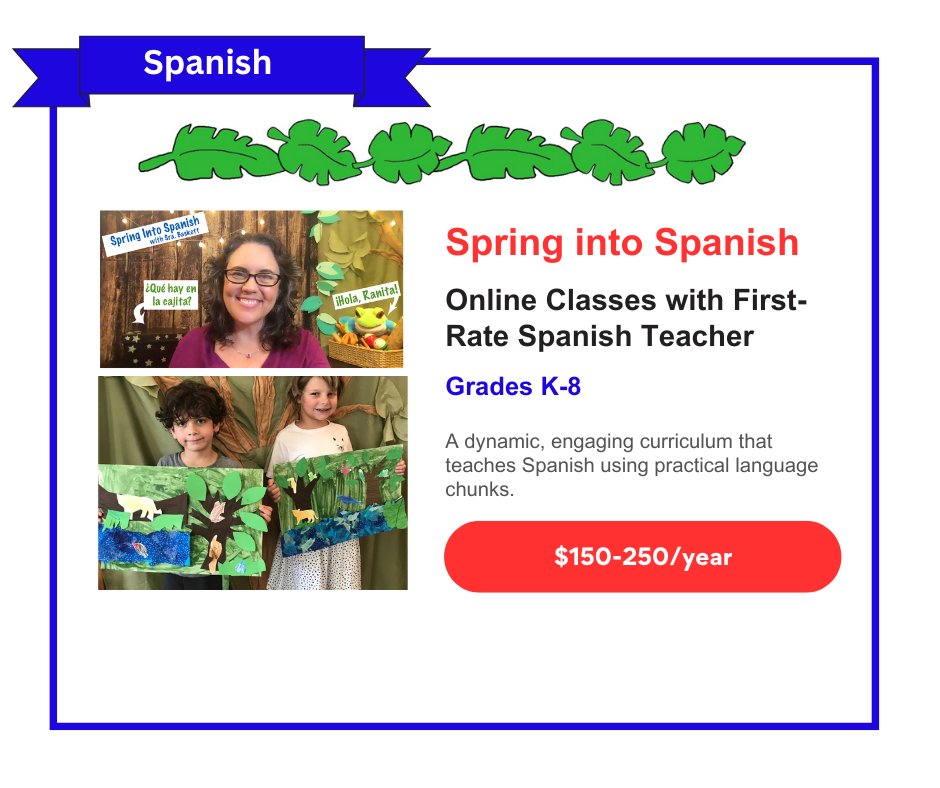

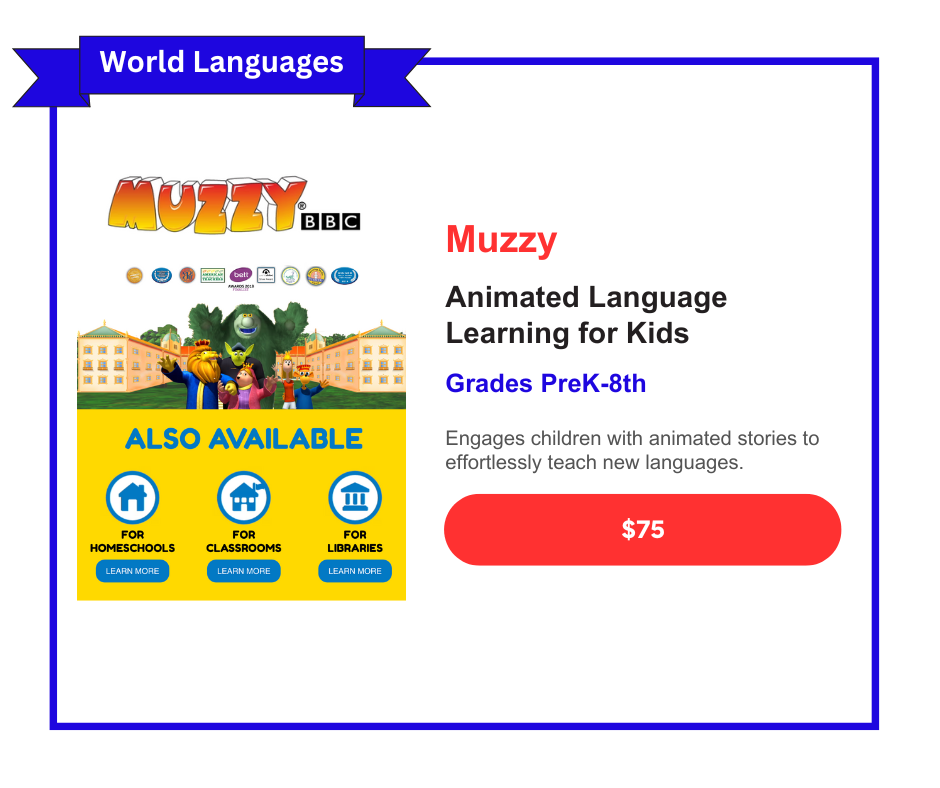

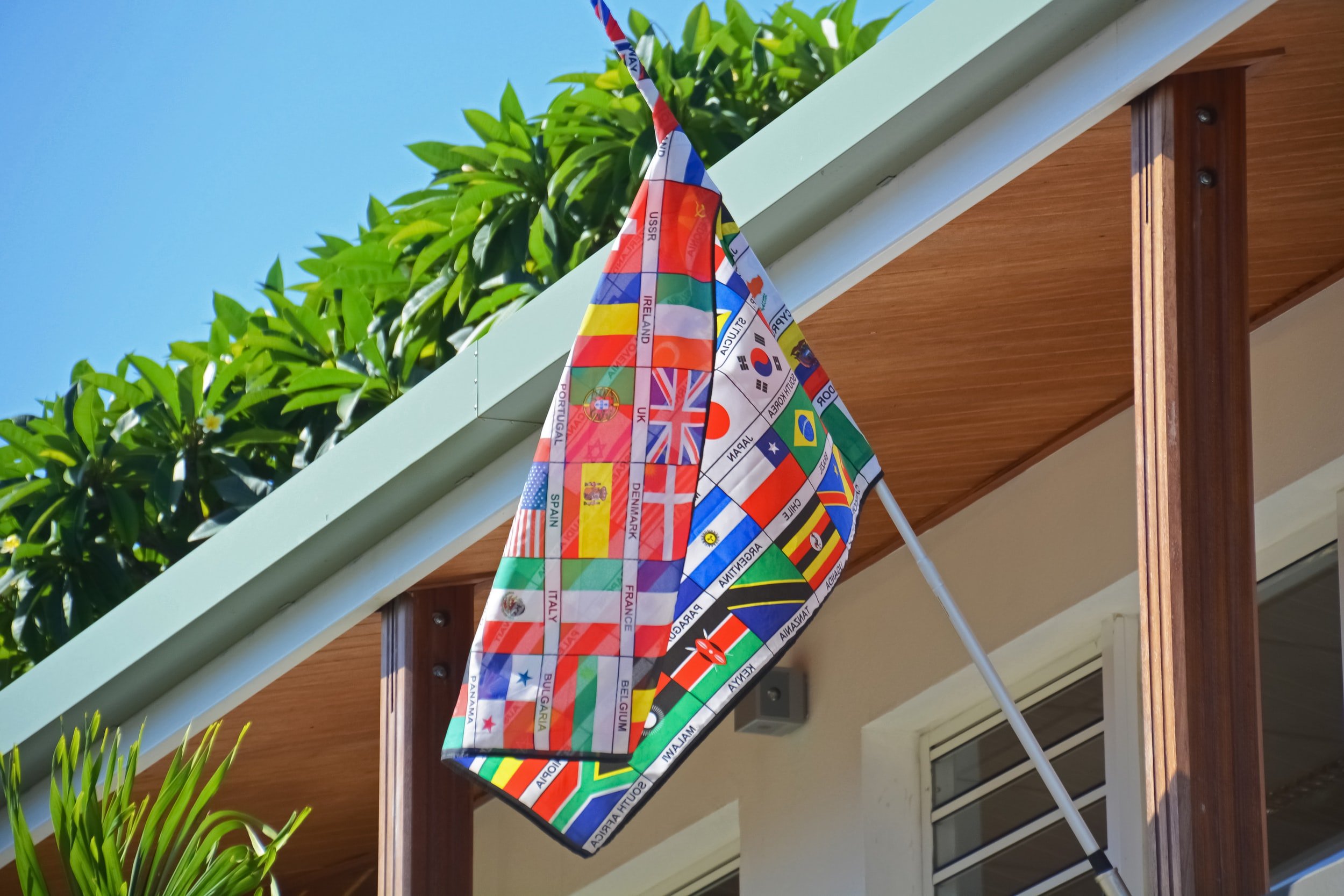

Explore how Duolingo transforms language learning into an engaging, gamified experience with our comprehensive review, ideal for homeschoolers seeking a flexible educational tool.